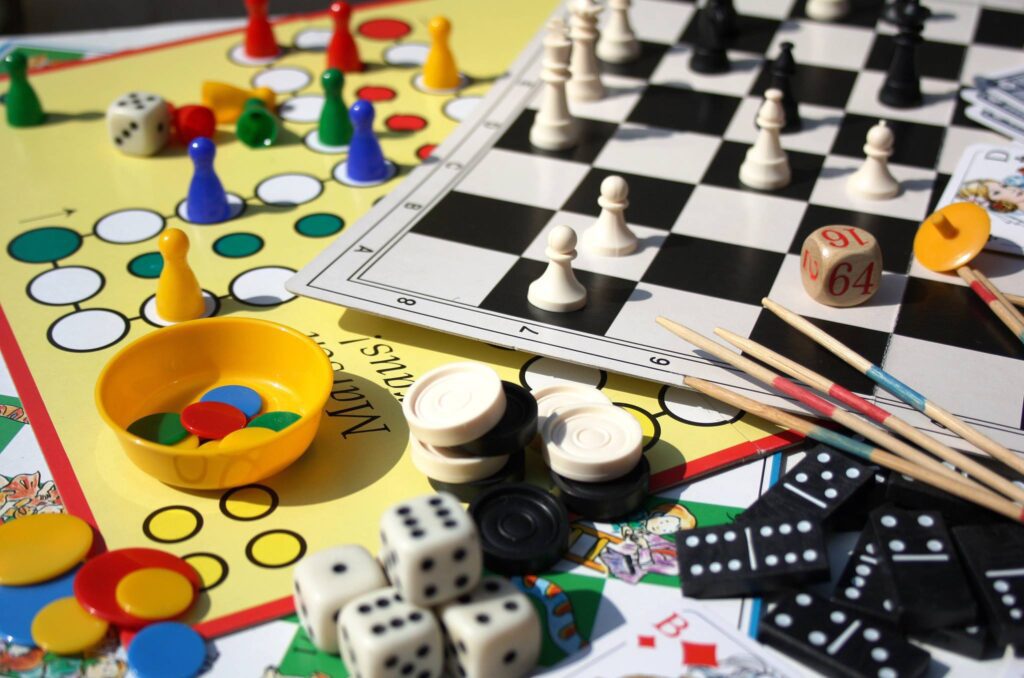Benefits of Board Games For Children
Board games have been around for centuries, and that’s not surprising considering their many benefits. At their core, these games promote social interaction, healthy competition, and develop problem-solving and critical thinking skills. However, the advantages that board games offer go beyond that. They can boost creativity and self-esteem, develop spatial ability, improve memory, and even teach empathy.
It’s no wonder that board games are still popular among young children, who are always eager to explore new ideas, learn new things, and have fun. Some popular board games for children include Clue, Risk, Candy Land, Chutes and Ladders, Monopoly Jr, and Uno, among others.
Beyond raw entertainment, board games can provide valuable opportunities for children to develop intellectually and socially. One of the most significant benefits of board games is their power to release natural hormones that promote happiness, reduce stress, and improve memory. The social setting created when playing board games improves interpersonal skills and is an excellent tool for emotional intelligence.


Social advantages of board games
Young children often learn a lot of things through play. Board games provide an opportunity for open communication, developing empathy, teamwork, and collaboration. Children learn to take turns, work together toward a common goal, resolve conflicts, and express themselves.
For instance, playing the game Clue has been shown to improve communication and collaboration skills. Clue is a mystery game in which players work together to solve a crime by using their detective skills, reasoning and deduction to solve the mystery. This game teaches children the importance of collaboration, teamwork and how to communicate properly to satisfy a common goal.
In other terms, board games that involve trading and cooperative gameplay, such as Settlers of Catan and Pandemic, can improve negotiation skills, strategy, and conflict resolution. Young children who play cooperative games tend to become better team players and more compassionate towards others.
Cognitive benefits of board games
Board games have the potential to activate both the left and right hemispheres of the brain. Some board games like Risk, Chess, and Checkers require players to use logic, strategy, and critical thinking abilities that exercise the left side of the brain. Other games such as Operation, Boggle, and Scrabble help develop verbal proficiency and language abilities. Scrabble, for instance, improves vocabulary and spelling while increasing memory and verbal communication.
Board games can also help to sharpen spatial-awareness and recognition skill, which is essential in daily life. Games like Rush Hour or Tetris promote spatial-reasoning and develop motor skills.
Since board games tend to require memory, focus and sustained attention, playing board games regularly can improve those abilities, which are essential in academic and professional settings. When children learn how to set and follow rules, work towards a shared goal, and maintain focus on the game, they develop an important skill set of discipline, focus, and attention.
Long-term benefits of board games
Board games offer long-lasting benefits to children that go beyond mere social interaction and mental stimulation. Regular gameplay can help build confidence and self-esteem that will benefit children throughout their lives.
Playing board games with family and friends becomes an excellent opportunity for bonding and relationship building. This bonding helps not only to create long-lasting friendships but also to have family members who are supportive of one another. These relationships are essential for children’s personal and social development.
Board games may also provide children with an intellectual advantage that makes them better-equipped to manage academic and career challenges. Learning how to strategize is an essential life skill, and board games offer children a fun opportunity to practice it.
Board games also encourage children to become lifelong learners, an essential trait when dealing with uncertainty, ambiguity, and the fast-paced workplace. As children learn new strategies and rules, and put them into practice, they learn how to be agile thinkers, flexible and adaptive.
Board games can also foster a lifelong appreciation for mentally stimulating and challenging hobbies. Many adults enjoy board games because they offer a challenge, and a chance to relax and have fun at the same time.
Conclusion
Board games can provide young children with tremendous benefits that enhance their cognitive, social, and emotional abilities. They offer an opportunity for families and friends to spend quality time together, build stronger relationships, and develop important life skills. These benefits, along with the sense of accomplishment and fun that comes with playing board games, make them an invaluable tool for any parent or educator seeking to provide a balanced and enriching learning environment for their children.
